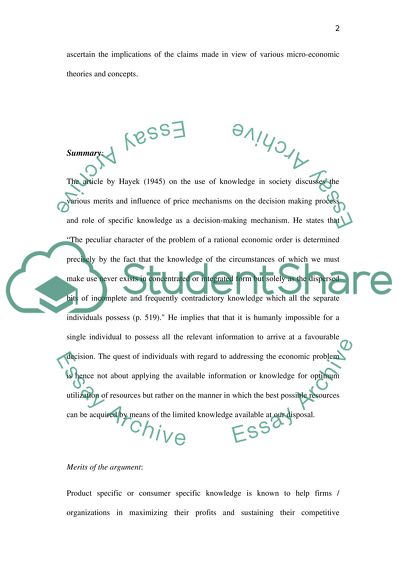Cite this document
(“The Use of Knowledge in Society Essay Example | Topics and Well Written Essays - 1750 words”, n.d.)
The Use of Knowledge in Society Essay Example | Topics and Well Written Essays - 1750 words. Retrieved from https://studentshare.org/macro-microeconomics/1465978-the-use-of-knowledge-in-society
The Use of Knowledge in Society Essay Example | Topics and Well Written Essays - 1750 words. Retrieved from https://studentshare.org/macro-microeconomics/1465978-the-use-of-knowledge-in-society
(The Use of Knowledge in Society Essay Example | Topics and Well Written Essays - 1750 Words)
The Use of Knowledge in Society Essay Example | Topics and Well Written Essays - 1750 Words. https://studentshare.org/macro-microeconomics/1465978-the-use-of-knowledge-in-society.
The Use of Knowledge in Society Essay Example | Topics and Well Written Essays - 1750 Words. https://studentshare.org/macro-microeconomics/1465978-the-use-of-knowledge-in-society.
“The Use of Knowledge in Society Essay Example | Topics and Well Written Essays - 1750 Words”, n.d. https://studentshare.org/macro-microeconomics/1465978-the-use-of-knowledge-in-society.


